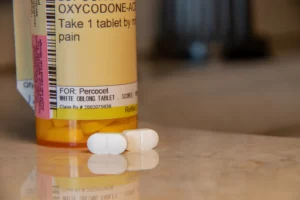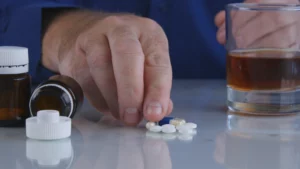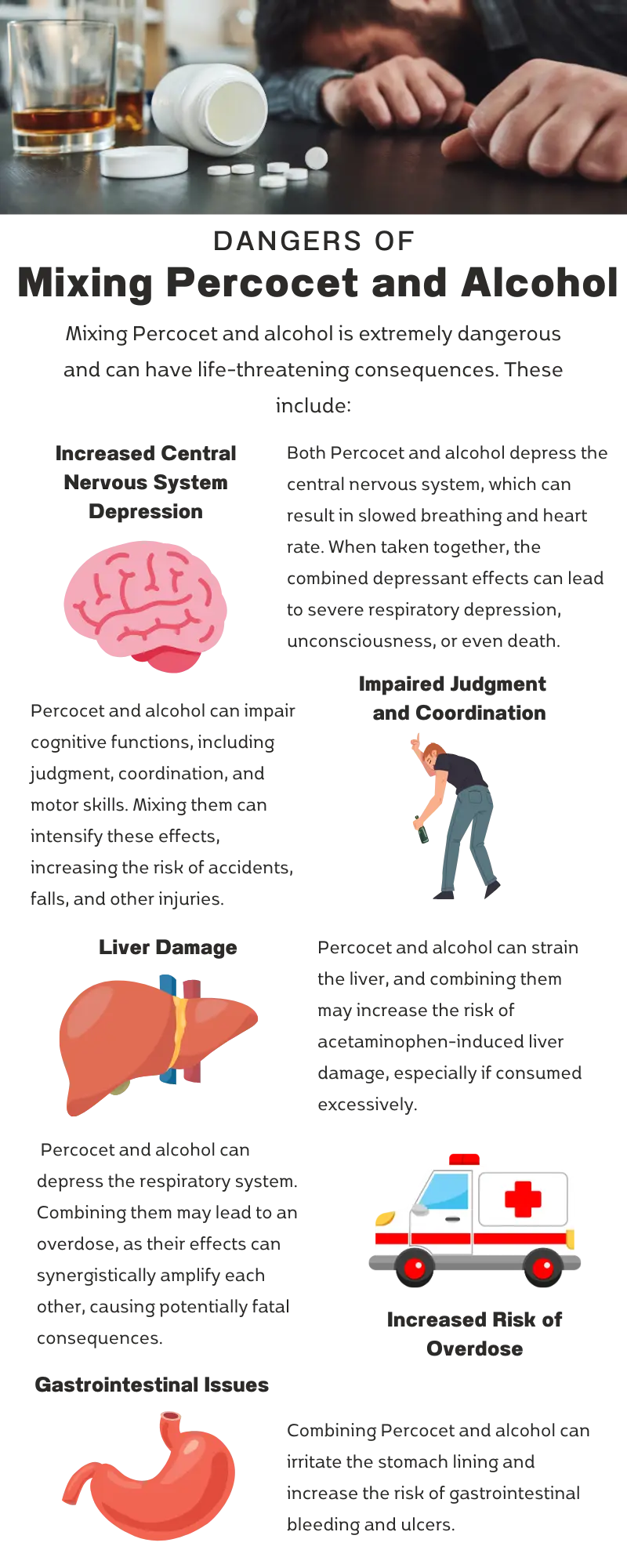According to a CDC study published in the American Journal of Preventive Medicine, over half of Americans who abused prescription opioids between 2012 and 2014 also engaged in binge drinking. The CDC found that these individuals were twice as likely to abuse Percocet and similar drugs.
When you combine Percocet and alcohol, the effects of both are amplified. Percocet slows your breathing and heart rate, depresses your central nervous system, and impacts your judgment and coordination. Adding alcohol to the mix intensifies these effects and can easily lead to overdose, especially if you’ve taken a higher dose of Percocet or have been binge drinking.
The bottom line? Don’t mix these two. Your life depends on it. If you’re struggling with alcohol or prescription drug addiction, tell a doctor or contact support organizations immediately. They can help you find alternative medications to cope with chronic pain or whatever issues drive you to misuse these substances. You don’t have to go through this alone.

What Is Percocet?
Percocet is an intense opioid that can slow your breathing and heart rate. When combined with alcohol, the effects intensify, and your central nervous system gets seriously depressed.
Percocet contains oxycodone, an opioid painkiller mixed with acetaminophen. Oxycodone works by blocking pain signals in your brain and slowing your central nervous system. This means it slows your breathing, heart rate, and other functions.
While Percocet can relieve pain, mixing it with alcohol is dangerous. Alcohol is also a central nervous system depressant, so the effects of both substances are amplified. This can lead to slowed breathing, dangerously low blood pressure, loss of consciousness, and even death.
Even small amounts of alcohol should be avoided when taking Percocet. The safest approach is to avoid or minimize alcohol consumption until you’ve stopped taking Percocet and it’s completely out of your system. If you drink while on Percocet, call emergency services immediately, as the combination of these substances can be lethal.
Effects of Misusing Percocet
Misusing Percocet, which contains the opioid oxycodone and acetaminophen, can have serious and potentially harmful side effects. These include but are not limited to:
- Respiratory Depression: Opioids like oxycodone can slow down the central nervous system, including the part of the brain responsible for controlling breathing. Misusing Percocet, especially in high doses or in combination with other depressants like alcohol, can lead to dangerously slow and shallow breathing, which can result in oxygen deprivation, unconsciousness, and even death.
- Addiction and Dependence: Misusing Percocet increases the risk of developing opioid use disorder (OUD), a condition characterized by compulsive opioid use despite negative consequences. The pleasurable and subconscious effects of opioids can lead to psychological dependence, making it difficult to stop using even when you want to. Physical dependence can also occur, leading to withdrawal symptoms when attempting to reduce or quit use.
- Overdose: Misusing Percocet significantly raises the risk of overdose. Overdose symptoms can include extreme drowsiness, confusion, unconsciousness, slowed or stopped breathing, and pinpoint pupils.
- Gastrointestinal Effects: Misusing Percocet can cause gastrointestinal issues such as nausea, vomiting, and constipation. Prolonged misuse can lead to severe constipation, which can be uncomfortable and even require medical intervention.
- Cognitive Impairment: Opioids can impair cognitive function, leading to problems with concentration, memory, and decision-making. Misusing Percocet can interfere with daily activities, work, and relationships due to cognitive impairment.
Read more: Opiate Withdrawal Timeline: How To Physically & Mentally Prepare

Effects of Misusing Alcohol
Misusing alcohol can severely impact the physical and mental health aspects of your life. Here are some of the potential effects of alcohol misuse:
Short-Term Physical Effects
- Impaired Judgment and Coordination: Alcohol affects cognitive functions and motor skills, leading to impaired judgment, decreased coordination, and an increased risk of accidents and injuries.
- Slurred Speech: Alcohol can affect speech, leading to slurred or incomprehensible speech patterns.
- Nausea and Vomiting: Excessive alcohol consumption can lead to feelings of nausea and vomiting.
- Dehydration: Alcohol is a diuretic, which increases urination and can lead to dehydration.
- Hangover: Once the effects of alcohol wear off, you may experience a hangover characterized by headache, fatigue, nausea, and sensitivity to light and sound.
Long-Term Physical Effects
- Liver Damage: Chronic alcohol misuse can lead to fatty liver, alcoholic hepatitis, fibrosis, and cirrhosis.
- Cardiovascular Problems: Long-term alcohol misuse can increase the risk of high blood pressure, heart disease, and stroke.
- Digestive Issues: Alcohol can irritate the digestive system, leading to gastritis, ulcers, and pancreatitis.
- Cancer: Prolonged alcohol misuse increases the risk of developing various types of cancer, including mouth, throat, liver, breast, and colon cancers.
- Weakened Immune System: Alcohol misuse can severely weaken the immune system, making you more susceptible to infections and sickness.
Mental and Behavioral Effects
- Depression and Anxiety: Alcohol misuse can exacerbate or trigger mental health disorders such as depression and anxiety.
- Memory Impairment: Heavy drinking can lead to blackouts and memory lapses, affecting your ability to recall events.
- Aggression and Risky Behavior: Alcohol can lower inhibitions and increase impulsivity, potentially leading to aggressive behavior, accidents, and risky sexual behavior.
- Social and Work Impact: Alcohol misuse can strain relationships, lead to poor work performance, and disrupt daily responsibilities.
Addiction and Dependence:
- Alcohol Use Disorder (AUD): Prolonged misuse of alcohol can lead to the development of alcohol use disorder, a chronic condition characterized by a strong craving for alcohol, loss of control over drinking, and withdrawal symptoms when not drinking.
Social and Legal Consequences:
- Impaired Relationships: Alcohol misuse can strain relationships with family, friends, and colleagues.
- Legal Issues: Misusing alcohol can lead to legal problems such as DUI (driving under the influence) charges.
Read more: The Risk of Addiction: Can You Die from Alcohol Withdrawals?

Dangers of Mixing Percocet and Alcohol
Mixing Percocet and alcohol is extremely dangerous and can have life-threatening consequences. These include:
- Increased Central Nervous System Depression: Both Percocet and alcohol depress the central nervous system, which can result in slowed breathing and heart rate. When taken together, the combined depressant effects can lead to severe respiratory depression, unconsciousness, or even death.
- Impaired Judgment and Coordination: Percocet and alcohol can impair cognitive functions, including judgment, coordination, and motor skills. Mixing them can intensify these effects, increasing the risk of accidents, falls, and other injuries.
- Liver Damage: Percocet and alcohol can strain the liver, and combining them may increase the risk of acetaminophen-induced liver damage, especially if consumed excessively.
- Increased Risk of Overdose: Percocet and alcohol can depress the respiratory system. Combining them may lead to an overdose, as their effects can synergistically amplify each other, causing potentially fatal consequences.
- Gastrointestinal Issues: Combining Percocet and alcohol can irritate the stomach lining and increase the risk of gastrointestinal bleeding and ulcers.
- Drinking while on Percocet also amplifies the effects of both drugs, increasing the risks of overdose, liver damage, and even death. The dangers of mixing Percocet and alcohol are very real and not worth the risk.

Contact MD Home Detox For Percocet & Alcohol Withdrawal
Recognizing the dangers of mixing Percocet and alcohol is crucial for maintaining your well-being. If you or someone you know is struggling with Percocet or alcohol abuse, the first step is detox.
Our at-home and medically-assisted detox program can help individuals overcome the initial feat of withdrawals. Our doctors and detox staff will monitor the entire process, ensuring you’re comfortable, supported, and motivated to push through an important part of your life. If you are ready to turn over a new leaf, contact MD Home Detox today.

